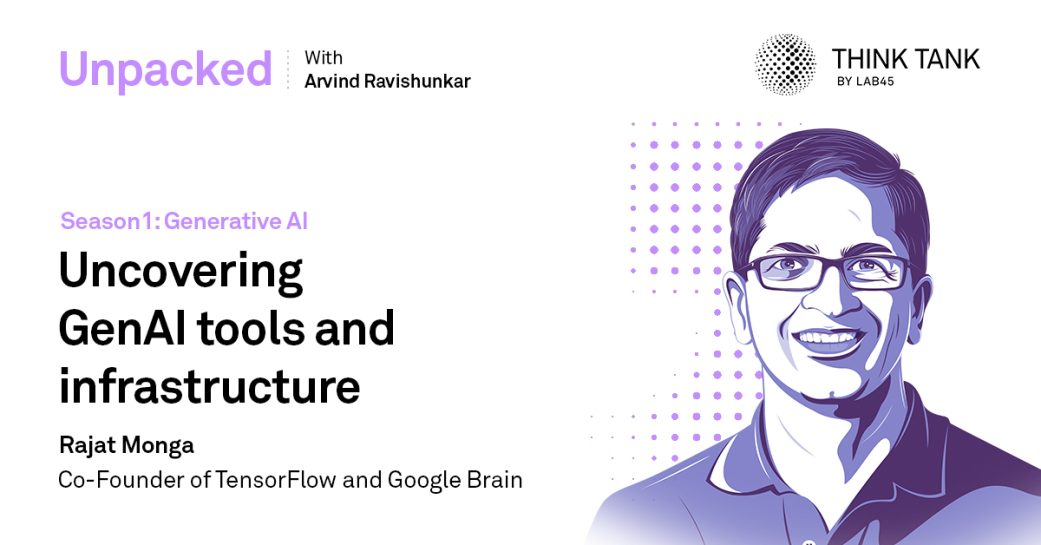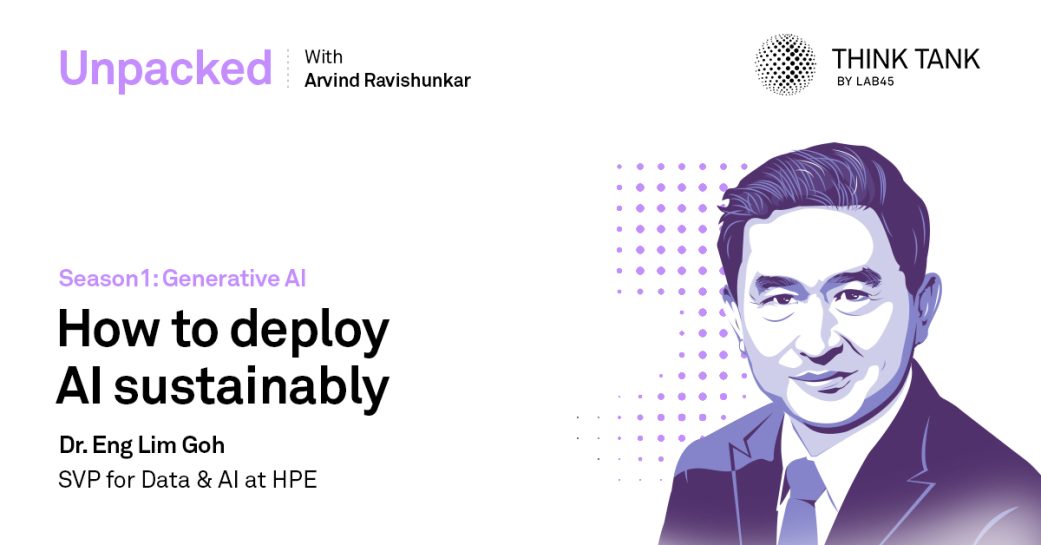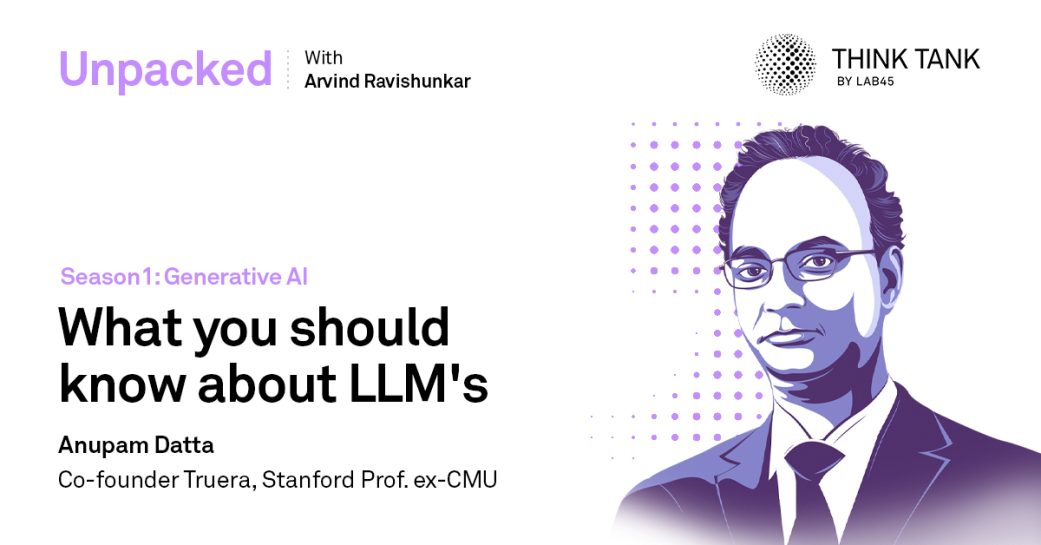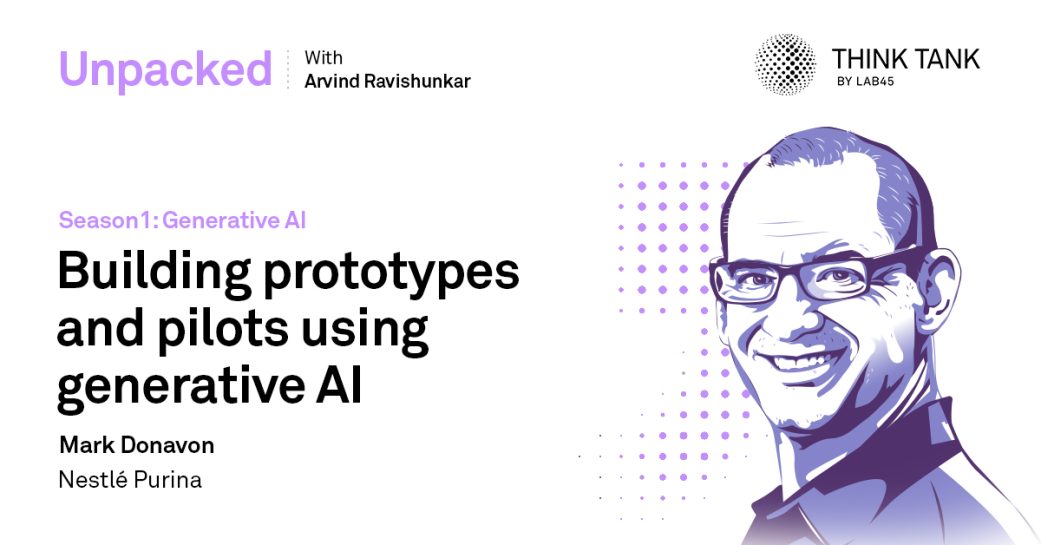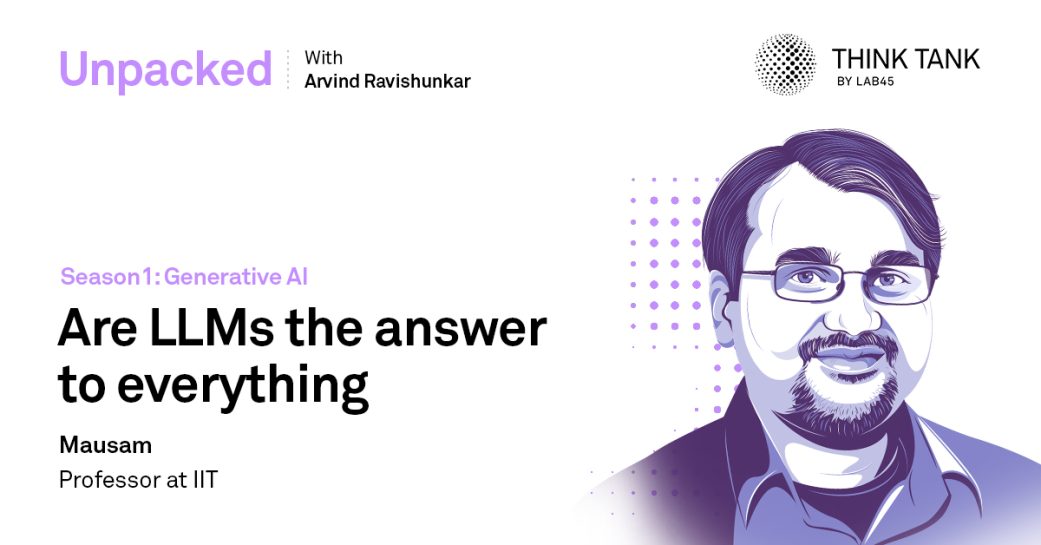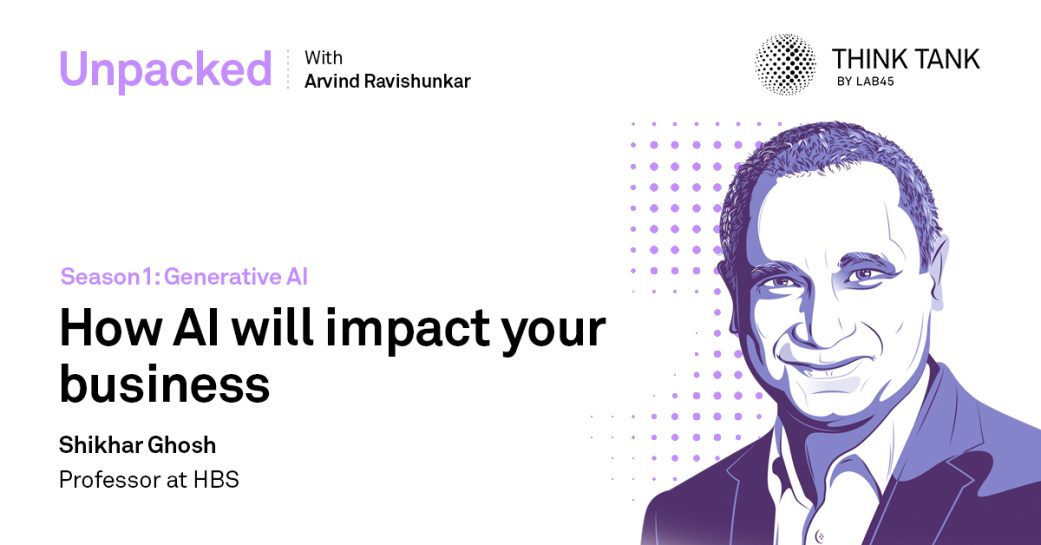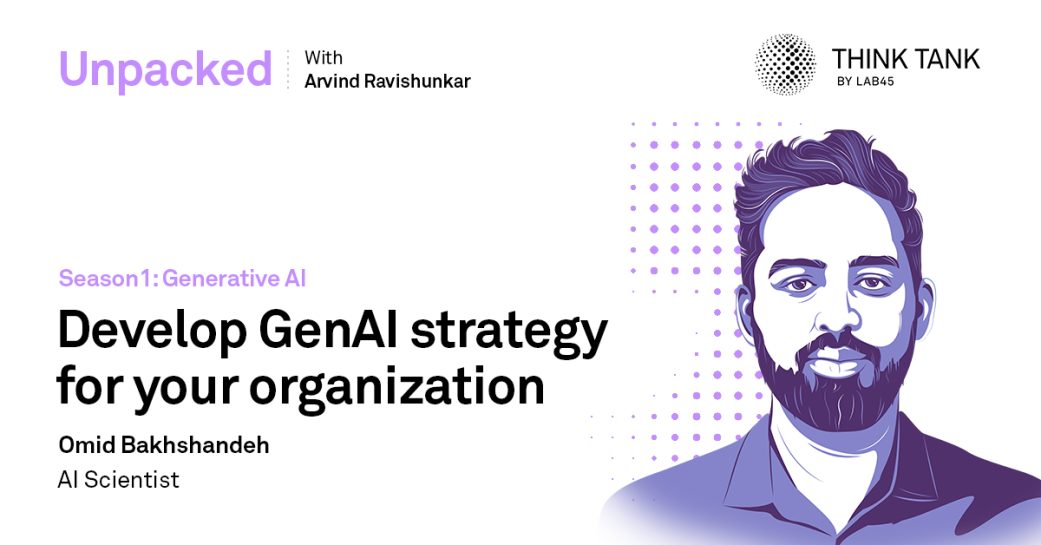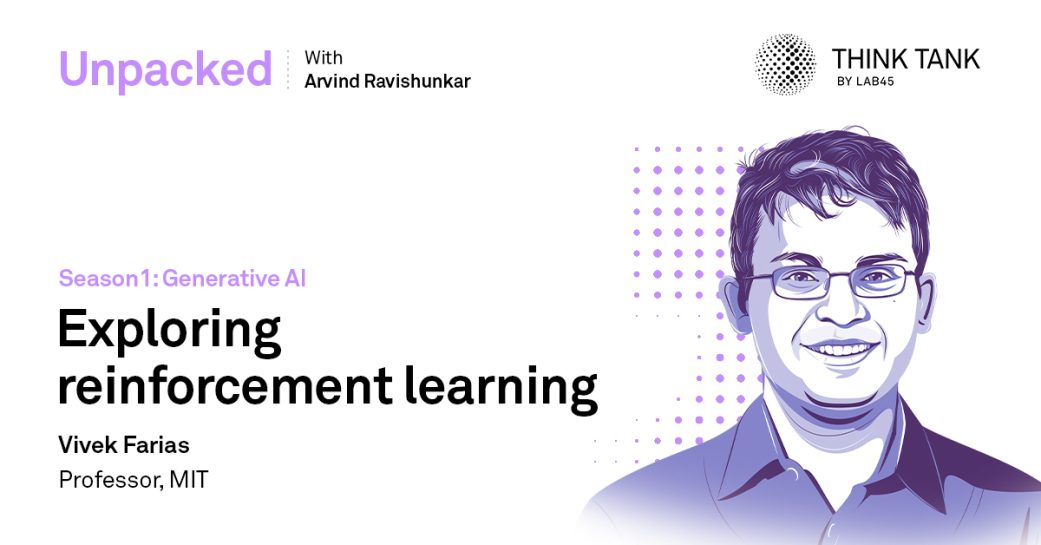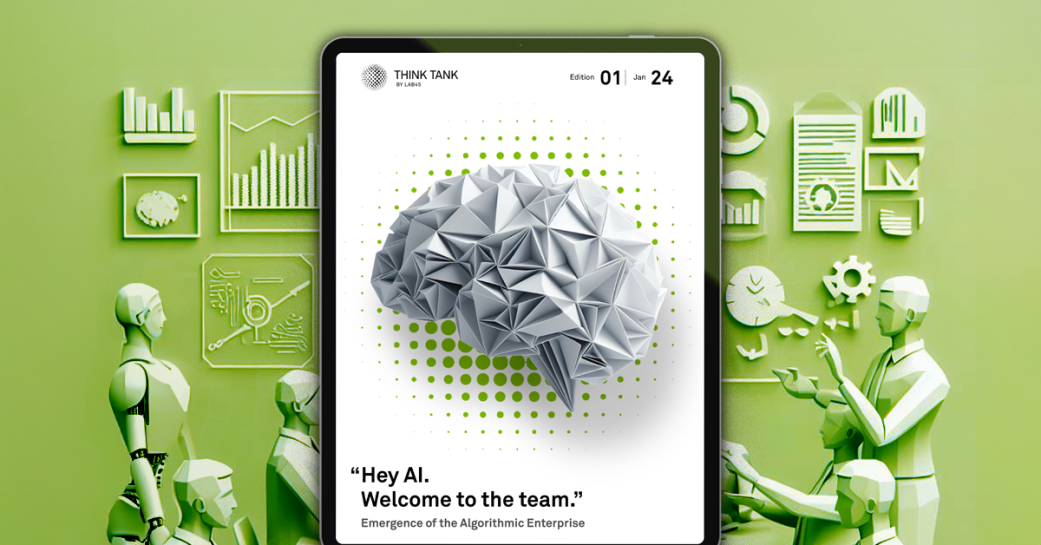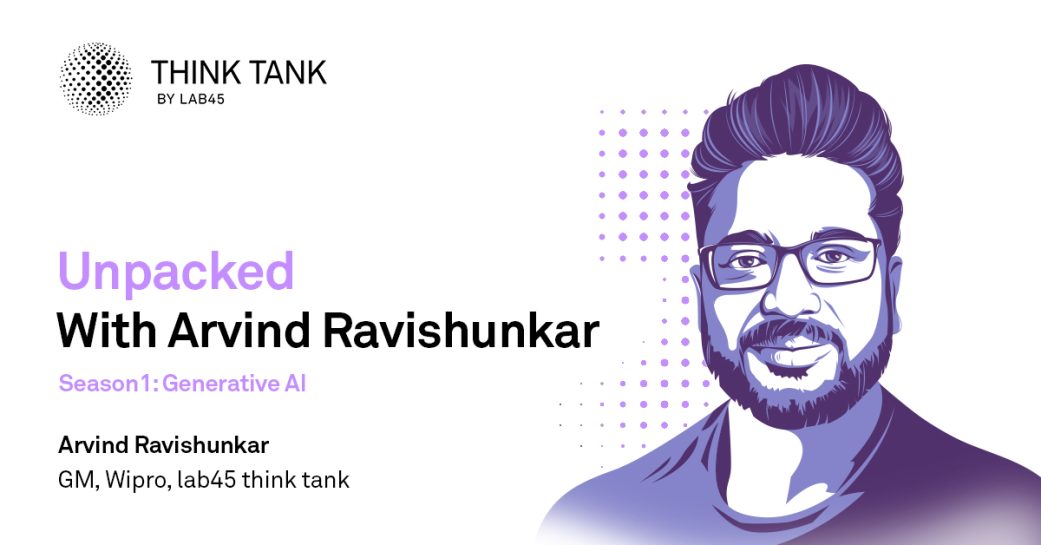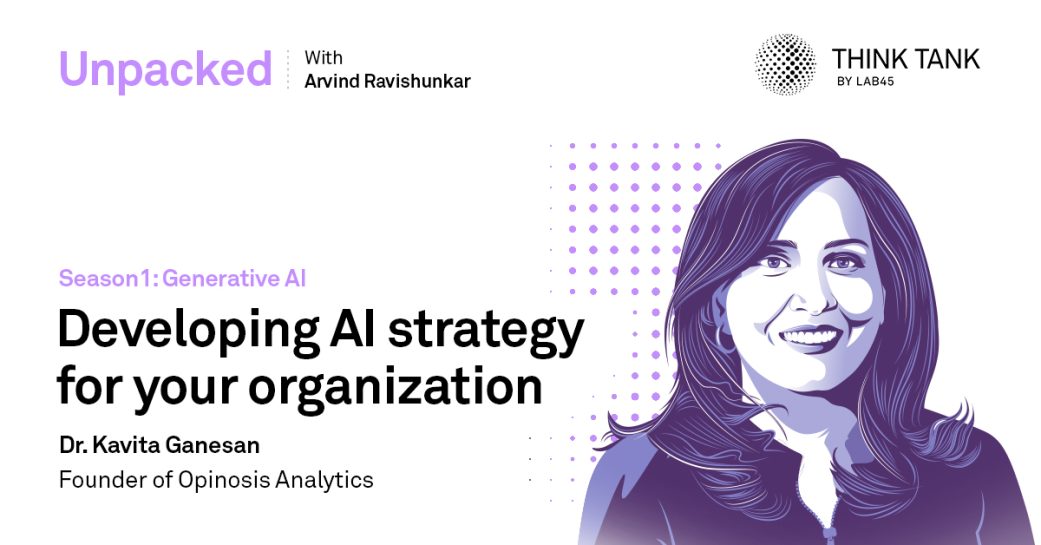Uncovering GenAI tools and infrastructure with Rajat Monga, Co-Founder, TensorFlow
Engaging topics at a glance
-
00:16:10Google Brain and TensorFlow
-
00:19:10TensorFlow for AI world
-
00:21:55Tooling and infrastructure needs of previous AI models vs. GenAI
-
00:25:40Trade-offs, Open-source library and framework vs. private company's framework
-
00:31:30Present quality of tool and Infrastructure available for GenAI
-
00:32:55How do I build a GenAI team?
-
00:37:50Vendors and the Infrastructure available today to take GenAI into production
-
00:41:51How to differentiate in the GenAI world?
Join us in exploring the evolving space of GenAI tools and infrastructure, featuring Rajat Monga, Co-Founder of TensorFlow and Google Brain.
A good power tool can make the difference of easily six to seven hours of work when you’re doing woodworking. And the world of AI is no different. The types of tools and infrastructure that are developed to help you as enterprise leaders build artificial intelligence products and features are very, very important. In this episode, with our guest’s help, we will unpack the infrastructure that surrounds you and the tooling that will help you as enterprise leaders build AI products and services.
However, you can also tell it, you know what? I don’t want you to do the math instead generate code that will do the math for me or use this certain calculator to do the math for me, and it can do that really, and you’ll get the right answers. And that’s basically what prompted generating has been about.

– Rajat Monga
We will look at how tooling and infrastructure needs are changing in the world of AI with the increasing adoption of GenAI. One key change that emerged from the talk is that now things have evolved to the extent that we don’t need to train the models from scratch. We already have foundation models available that know our world up to some level, reducing the burden of training the model with tonnes of data. However, models today have become so large that they sometimes don’t fit in a single machine.
As connecting your database with these models is very important, we also discussed the trade-offs between the open-source and private libraries. Should companies manage data on their own or outsource it? When you are not training your model, the easiest and fastest way is to use API, and if you want your data on-prem, then it will mostly cost you more. In the end, it boils down to what core to you is, and often, not all part of the infrastructure is core to companies. So, if your data is not your core strength, then better outsource it.
This episode also uncovered the current tools and infrastructure available for GenAI. The current tools and infrastructure available for large-level deployments are going through a rapid evolution; they are not very hard to rebuild or replace, and new companies are emerging in the tooling and infrastructure for GenAI space.
Now what’s going away in some sense is perhaps the lead you might have where your beta model was ready two years ago and you were doing something interesting. Now you know what? Unless that model had some proprietary data and you can continue to leverage that, that’s gone.

– Rajat Monga
When looking at the talent and skills needed for GenAI implementation in your organization, it is important to have technically sound people with domain expertise in the organization’s particular area.
For the differentiation in the market domain knowledge in your area, relationship with the customers, distribution channel, your execution, etc., today plays an even bigger role. However, in this data-driven world, having proprietary data and knowing how to leverage it can be an added advantage. To find out more, tune in to the full podcast.
Production Team
Arvind Ravishunkar, Ankit Pandey, Chandan Jha

